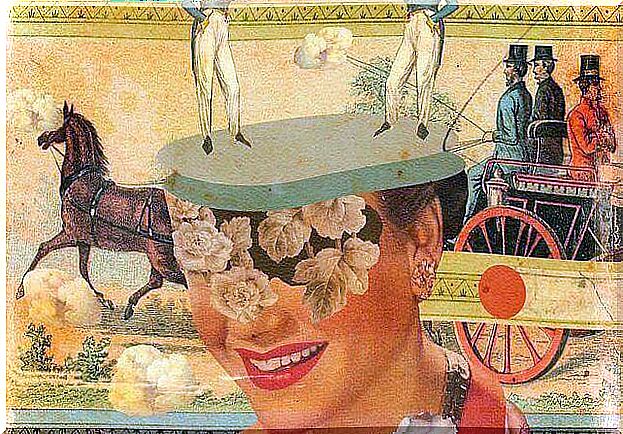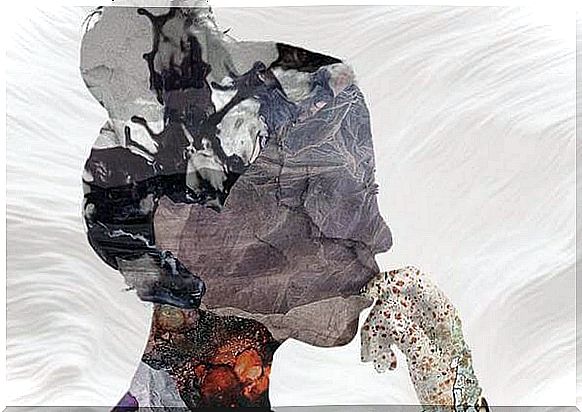Is There A Universal Morality?

Is there a universal morality? A question that in the opinion of many thinkers has a complex answer. If we look at the words of the famous thinker Immanuel Kant, humans “ see things, not as they are, but as we are ”. Does this mean that the interpretation of morality depends on the currents of thought of each age? Or maybe the personality of each individual?
Currently we can describe morality as a set of values, principles and prescriptions that the men of a particular community consider to be the valid ones to shape or frame their real actions. Does it mean that in each society there can be a different morality?
Perhaps we could go to the nature of ‘value’. This term can be understood as something that has to be valued according to the experiences of the subject and as a specific section. That is, it speaks of ethical, legal, religious, social, economic values, etc.
Now, whatever the type of values and beyond times, currents and thoughts, is there an innate universal morality in the genetic code that has remained throughout time in all societies, both current and historical?
Are the values of universal morality repeated?
If we look at the author JG Caffarena, we must speak before valuations than values. In other words, a choice involves a value judgment and an evaluative act perceived by each individual in a unique way. At that time we are conducting an evaluation and issuing a rating.
In this sense, we have to be clear about the nature of the rating. Why is it that we issue a value judgment or another? Does it depend on our genetic code as a human? Is it related to the education that society has provided us?

If we look through history, we can look at classical Greek culture. The fathers of politics, democracy, ethics and morals, they were staunch defenders of slavery. However, today’s more culturally advanced societies repudiate this practice.
Now it is worth wondering about the social context of each era. Is the ethical and moral interpretation of the Greeks 2,500 years ago less valuable than that of the thinkers of more modern societies? Were they really acting without morals to facilitate slavery? Did they have a chance to abolish slavery, or was it such a widespread and ingrained practice that it did not even cross the mind of the most brilliant of their thinkers?
Morality in history
If we go a little further and travel back in history to the times of the Roman Empire, we also find slavery as an established and normal business practice. Even so, great thinkers such as Cicero said that “slavery is the subjection of a weak and cowardly spirit that is not master of its will. “
Can this be interpreted as a lack of social context? Weren’t the slaves masters of their will and that is why they deserved that fate? Seneca also alluded to this issue saying that ” the most degrading slavery is that of being a slave to oneself. “
Does this mean that for thinkers like Seneca or Cicero there was no possibility of considering slaves as people worthy of their meditations and writings? If this is so, can we judge them as non-moral or amoral subjects for allowing such a common practice in their time?
Obviously, the Greeks or Romans did not see anything transcendent in this sense. However, later the emperor Marcus Aurelius abolished gladiatorial games and other attractions for observing them bloody and unnecessary. I mean, maybe they did have the ability to understand slavery as a barbaric practice, right? Many other examples emerge throughout history to this day, such as the Middle Ages, colonization, ethnic cleansing …
Universal morality and the present time
At present, in most of the current societies that interact with each other, a series of values can be observed that could be considered as common universal morality. In fact, there is even a UN declaration on the matter, linking in a certain way a correct way of acting, Human Rights.
Nowadays, games like the fights between humans or against beasts would not be accepted publicly. Slavery has been abolished in much of the world and it is rare to find a citizen who can regard it as an acceptable practice.

Now, thinking that we are “children” of the society in which we live, are we victims of our circumstances? If there were a radical change in vital conditions, would it change our way of seeing life? Wars, epidemics, climate change …
That is, is there really a universal morality that has adapted to the change of times? Has it evolved to have purer values every day? Do we have an innate genetic code that leads us to consider the good and the bad according to the specific circumstances of each situation or time? There doesn’t seem to be a simple answer, but there are thousands of questions that come up over and over again …









